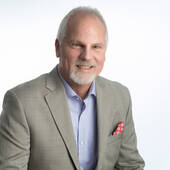Getting a reverse mortgage is a great way to create additional income in retirement, but they aren’t for everyone. Just as with any mortgage product, there are qualifications, but beyond that, there are also times when certain products will be better suited than others.
If you are considering options for retirement income and/or a mortgage free retirement, here are 9 questions to ask yourself before getting a reverse mortgage. If you aren’t sure what the answers are and want to speak to a reverse mortgage specialist, contact me, Kevin Guttman, for a fair assessment and no pressure or obligation fact finding session.
Getting a reverse mortgage: The Income and Value
1. Do you have home equity?
A reverse mortgage works by using the equity already in your home. You can build up your equity, or, if purchasing a new home, you will need about a 50% down payment in order to have the equity needed to qualify for a reverse mortgage. If you aren’t sure how much equity you have, let’s talk to see if it meets the requirements.
2. Do you have income for the associated costs?
Annual fees and income requirements include being able to pay homeowners insurance, any HOA fees and property taxes without having to borrow. The important thing is that you know and understand how the reverse mortgage can benefit you now and in the future.
3. Do you have income for home upkeep?
You can use the funds from the reverse mortgage for remodeling costs, such as making adjustments to the home in a way to support living in it longer. However, you should have enough income to cover the ability to perform regular upkeep. You want the home to stay safe and livable for you.
Getting a Reverse Mortgage: Future Plans
4. Do you plan on staying in your home?
A reverse mortgage requires that your home is your primary residence. Additionally, it is most ideal if you plan on being in your home for at least 3 years. The fees associated with a reverse mortgage make the most sense only within a long term plan. If you are concerned you will be relocating in the next year or two, a reverse mortgage may not be right for you.
5. Do you want to leave your home to heirs?
It is important to document your end of life plans including inheritance. Any equity left in your home can be gifted to heirs. The home can be purchased by your heirs and they can live in the home or rent it out. Find out if heirs want the home or not so you can plan and set it up properly with the reverse mortgage in place.
6. Do you have a plan for Long Term Care?
Some people use their home equity to cover end of life expenses such as nursing care and assisted living. Talk to your financial advisor about how those expenses will be paid to determine if a reverse mortgage fits in that plan or if adjustments need to be made.
7. What is the best way for you to receive payments?
You can receive funds from the reverse mortgage in a number of ways. You are able to choose a line of credit, a lump sum, fixed monthly payments, fixed term payments or a combination of those. Reverse mortgage studies are showing the benefit of using the funds in a certain way, however your unique situation may change those recommendations. There is a limit to the amount drawn in the first year making this decision important to discuss as part of the bigger plan.
Getting a reverse mortgage: Is it right for you?
8. Have you talked to more than one person about reverse mortgage options?
Sometimes an objective eye and multiple opinions are best in large decisions. Talking with a trusted family member or financial advisor will help you ask better questions and understand things that aren’t clear. A reverse mortgage specialist should have your best interests in mind. Discussing your objectives with him or her in addition to another trusted individual will keep you safe from the ‘bad apples’. Home equity lines of credit can run out, but Reverse Mortgages don’t. Make sure you understand whether or not that will meet your objectives.
9. Do you and your home meet the eligibility requirements?
Your home needs to meet certain reverse mortgage requirements, such as being a single family home, townhome, condo or 2-4 unit multi family home occupied by you as your primary residence. You must be 62 years old or older, but your co-borrower isn’t required to be. However, your co-borrowers age can affect how much you are able to receive in payments, so discuss this with your reverse mortgage specialist.
If you qualify for a reverse mortgage, you can have another option to meeting your retirement goals. Some of the questions can bring up some complicated topics. If you feel you could qualify for a reverse mortgage or have additional questions, please contact Kevin Guttman. He is happy to talk to you and help you make the right decision for your unique situation.

Comments(0)